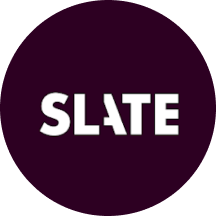
By Colleen Goko
JOHANNESBURG (Reuters) -Fitch Ratings expects South Africa to announce a revised 3% inflation target during November's medium-term budget policy statement (MTBPS), a senior analyst said on Tuesday.
Central bank Governor Lesetja Kganyago said earlier in October that the central bank and National Treasury agreed the inflation target should be lowered but they were still discussing when to make the change.
"It doesn't mean that it will strictly be implemented immediately," Thomas Garreau, Director for Middle East and Africa Sovereign Ratings at Fitch, said during a media briefing.
"We do consider that South Africa's Reserve Bank will have some tolerance for inflation," and not hike rates as a result Garreau added.
Kganyago surprised financial markets in July when he said the central bank would effectively target 3% inflation, rather than the formal 3-6% range set by Finance Minister Enoch Godongwana.
Commenting on South Africa's credit rating, Garreau said it was not necessarily linked to higher GDP growth.
"But we must be confident that medium-term growth prospects will be higher and will become sufficiently strong to support fiscal consolidation and address some challenges ... typically high inequality and unemployment," he said.
Confidence in stabilizing government debt-to-GDP would also be a positive sensitivity for the rating, he added.
Fitch affirmed South Africa's BB- rating with a stable outlook in September, projecting growth of 1.2% from 2025 to 2027, below the median of 3.7% for similarly rated peers.
The agency cited weak logistics, low investment, and structural unemployment as key constraints.
South Africa lost its investment-grade rating with Fitch in 2017 and was downgraded to BB- in 2020, when the agency projected general government debt would rise to 94.8% of GDP in the financial year to end-March 2023 from 64.9% in the previous period.
Looking ahead, Fitch projects debt rising slightly to 79.6% in the financial year ending March 2027. This is above government forecasts, who estimated debt peaking at 77.4% this year before starting to ease.
Last week, Kganyago criticized past projections by rating agencies, calling for borrowers to have the ability to challenge ratings.
(Reporting by Colleen Goko, editing by Karin Strohecker and Chizu Nomiyama )

 Reuters US Economy
Reuters US Economy
 The Daily Beast
The Daily Beast FOX 32 Chicago Crime
FOX 32 Chicago Crime Real Simple Home
Real Simple Home Slate Politics
Slate Politics FOX 10 Phoenix National
FOX 10 Phoenix National America News
America News The Hill
The Hill